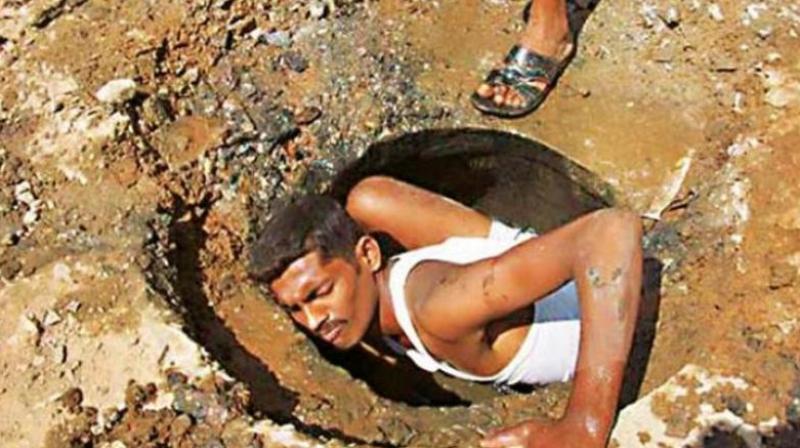Tackle this national shame
The PM's Swachchh Bharat programme has had no bearing on this issue as VIPs go about with their photo-ops, praising the campaign.

The nation’s capital has got rude shocks right through this month as newspapers reported the deaths of young men who descend into dark pits to clean sewers and septic tanks — 11 at last count, including the premises of posh hotels. But this pales into insignificance when it’s appreciated that across the country, one sewage cleaner — euphemistically called “safai karmachari”, or “cleanliness worker” — has died every five days since January 1, 2017, according to the data given by the National Commission on Safai Karmacharis.
For good reason, Safai Karmachari Andolan leader Bezwada Wilson claims there is gross under-reporting in the official data. There appears to be no proper agency that collates such data. “Safai karmachari” is a cute expression for manual scavenging (the cleaning of dry latrines), banned by Parliament in 1993, with the law amended in 2013 to cover sewage workers. And yet workers die as they step into dark holes.
In effect, the law is being laughed at. This hides another dark reality in India — that safai karmacharis belong to a particular group from among former “untouchable” castes. While we claim untouchability is dead, members of this sub-group find it difficult to get other jobs. The PM’s Swachchh Bharat programme has had no bearing on this issue as VIPs go about with their photo-ops, praising the campaign.
H10
